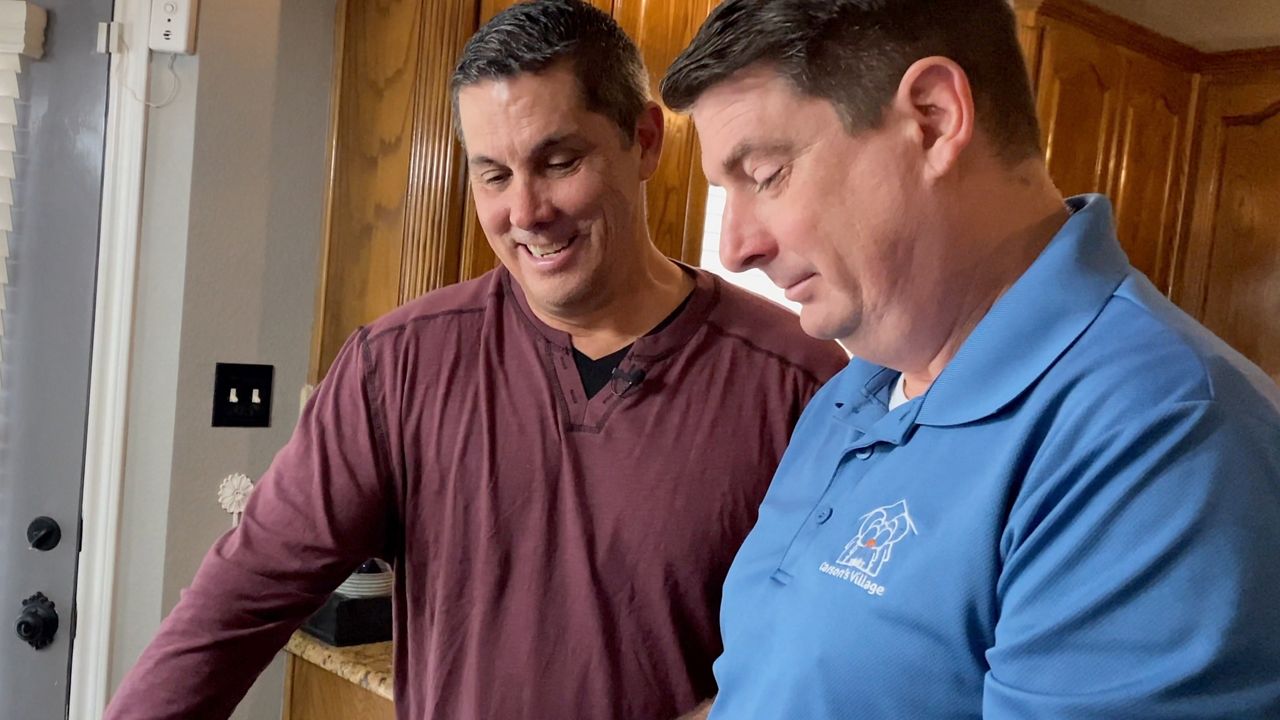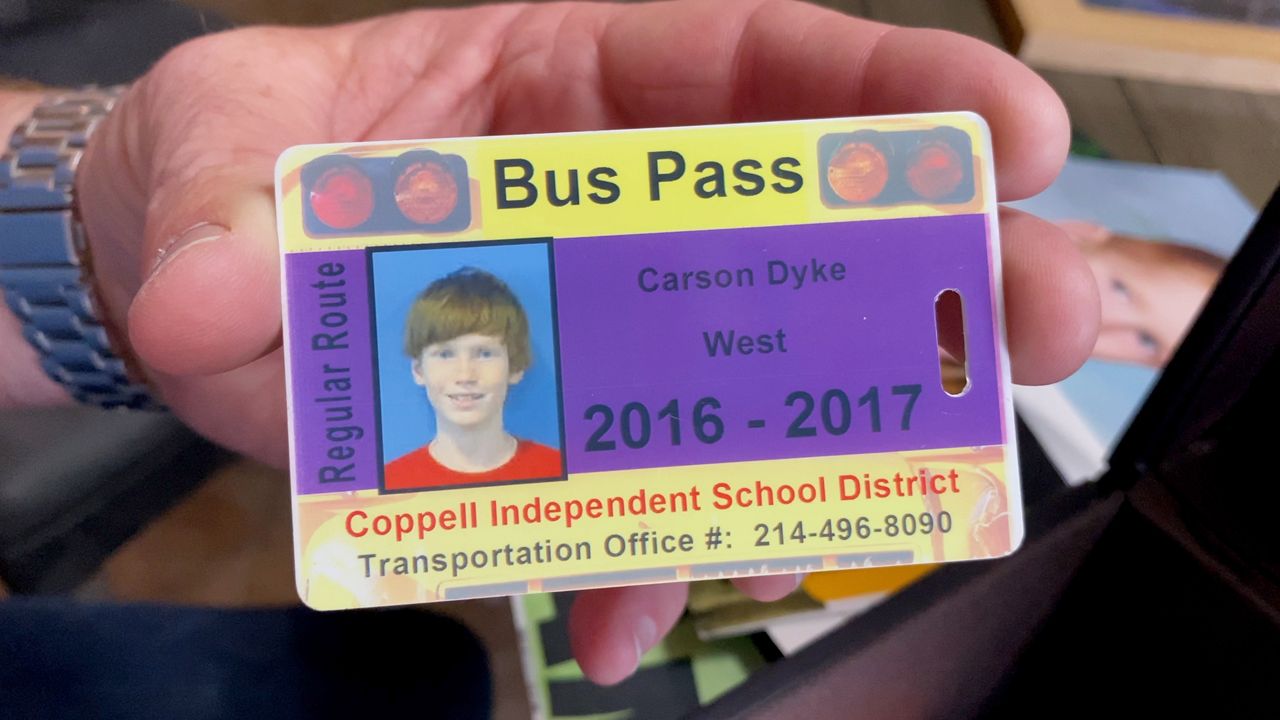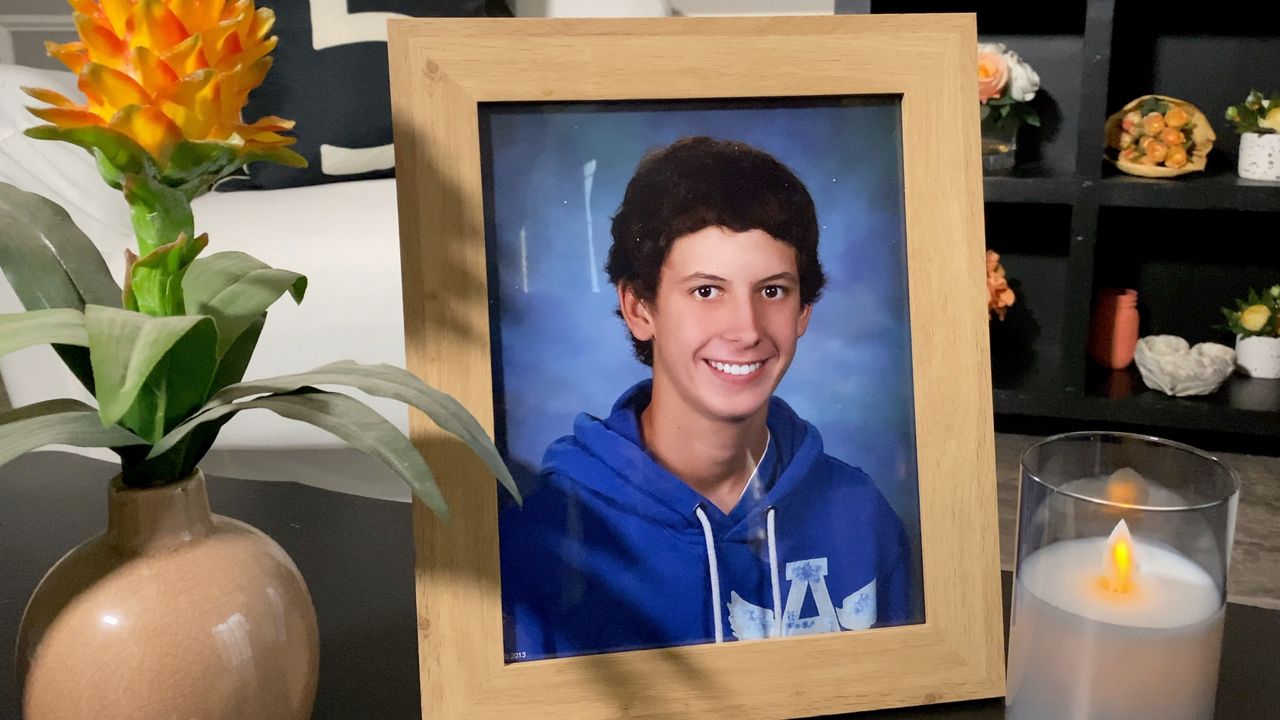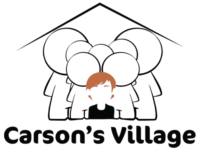Help wanted: Using your past grief to support others hurting
DALLAS — Grieving a loved one is something almost everyone will experience.
Chuck Bird had lost loved ones before, but he wasn’t ready when his 16-year-old son Kyle unexpectedly died in 2014.
“He was a great son,” said Bird. “When you’re a young father and starting a family, what you’d want your son to be, Kyle was.”
Chuck, his wife Maelani and Kyle’s siblings Kassidy and Kaeli remember the teenager as a baseball-loving, stylish kid who enjoyed dressing well.
“He was such a loving and compassionate kid,” Kyle’s mom Maelani said.

Through Kyle’s death, his parents have found a friend in Jason Dyke. Dyke also knows what it means to unexpectedly lose a child. His 11-year-old son Carson died in 2017.
“He was an intense kid,” said Dyke. “He always wanted everything to be perfect and had a great sense of humor.”
Because of Carson’s sudden death, Dyke founded a nonprofit organization called Carson’s Village. It’s designed to help families navigate the journey of healthy grieving after the loss of a loved one. He said he felt very fortunate to have had a “village” of loved ones that took care of him and his family during that very difficult week. Dyke said he had friends who helped get him through the funeral and the challenging decisions they were asked to make.
“I realized that not everyone has a village of support,” said Dyke. “Where did they go when they needed help?”
After googling and researching, he said he realized there was no organization in the United States whose mission was to compassionately support all aspects of what a family needs after the loss of a loved one with a live advocate.
“What I came to realize was that bereavement services in the United States are sorely underdeveloped,” said Dyke. “It’s a topic no one wants to talk about. Bereavement support is lacking, awkward, often inadequate and driven by the funeral home industry. This was a gap in services that I knew I could fill.”
The organization provides a live advocate to support a family through the funeral or cremation. Then it keeps in contact with the family for up to a year to help foster healthy grieving.
“At Carson’s Village, we know that each person’s grief journey is unique,” said Dyke. “We understand that different things help different people. That’s why we created our Peer-to-Peer program where you can regularly speak with someone in the community who has also experienced a similar loss.”
The peer supporters, or “Villagers,” as Dyke calls them, are volunteers who participate in 20 hours of training and monthly meetings through Carson’s Village so that they can support their peers.
“We match our Villagers and Peers with intention, hoping to help form relationships that will be as meaningful as possible,” said Dyke.
Those who utilize Carson’s Village services can request a Villager at any point during their assistance with the organization, and must be 18 or older to participate.
“Our Villagers play a special role in serving our community,” said Dyke. “These people act as peer supporters to those who are actively grieving the loss of a loved one.”
Dyke believes the work that is put into becoming a Villager is returned in the meaning that is found from the peer connection.
Requirements to become a Villager:
- Experience of losing a loved one, with at least two years having passed since this loss
- Completed application, including agreement for a criminal background check
- Interview
- One-year commitment
- Twenty hours of initial training (virtual) over several sessions
- Monthly check-ins with Carson’s Village staff (virtual)
- Desire to assist those who are grieving from a recent loss
- Three-plus check-ins with assigned peer per month
- Eighteen years old and up
“We’re looking for volunteers much like Chuck,” said Dyke “We want to pair people like Chuck and Mealani with a family to talk to them about the specific loss they’ve had and help them down that path and let them know there is hope that they can get past it. There is life for themselves, their family beyond the immediate loss they feel.”
A love for helping and the loss of a son aren’t the only things Dyke and the Bird family have in common. Both Kyle and Carson died by suicide.

Here in Texas, suicide is the second-leading cause of death for people between the ages 10 and 24, and these grieving parents want to de-stigmatize talking about suicide as a public health issue.
“Suicide is a serious public health problem,” said Mr. Bird. “There’s such a stigma with suicide and just dealing with the loss of a loved one from suicide is so hard because there’s the why’s, what was the situation, did I cause it somehow? There is guilt involved with it and that’s different than any other kind of death.”
Though both families lost their sons to suicide, Carson’s Village does not exclusively support those affected by suicide, nor are the volunteer peers affected only by suicide. The organization is seeking volunteers who have experienced loss by any cause of death.
Those interested in learning more about the program can do so by clicking here.

“If you have the calling, you should think about helping,” said Kyle’s dad. “If you’ve been through a loss or you’ve been through some tragedy and you’re looking at a way to help or make some good out of it, Carson’s Village is a wonderful way to do it. It’s tragic, but that’s a pretty awesome opportunity to be able to help someone in their darkest hour.”
For more information, you can visit CarsonsVillage.org. The service is completely free. Their goal is to help families avoid many of the common pitfalls that come with an unexpected loss.
If you have an interesting story or an issue you’d like to see covered, let us know about it.
Share your ideas with DFW human interest reporter Lupe Zapata by emailing him at Lupe.Zapata@Charter.com
